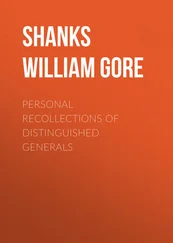Another commentator wrote on the internet: ‘Neitzel is one of those innumerable biased assembly-line scribes, of the kind that I met enough of at university, who unfortunately constitute the majority of Germany’s popular educators – that’s all you really need to know.’ Reactions of this kind illustrate that, despite the passing of the eyewitness generation, there is still an apologetic trend in Germany that finds its voice first and foremost in the new media. Of course the size of this scene cannot be estimated because it neither participates in scholarly discourse nor does it have access to the mainstream media. We certainly cannot disregard statements of this kind merely because they do not appear in the established media; nevertheless, we should also not overstate their impact. The myth of the clean Wehrmacht was destroyed long before the publication of Abgehört – a fact of which the international community is often not aware.
Reducing the Wehrmacht to crime and murder, or simply ignoring such topics, clearly does not contribute to the propagation of scholarly knowledge and often says more about the author than about the historical subject at hand. Such arguments do, however, emphasise once more how emotional debates in Germany are today, almost seventy years after the end of World War II, even if the controversy unleashed by the ‘ Verbrechen der Wehrmacht ’ (‘Crimes of the German Wehrmacht’) exhibition in the 1990s has calmed down in the meantime.
Scholars also received Abgehört with a great deal of interest, and the focus here was also on the chapter on crimes. The other aspects of the study – such as perceptions of Hitler and National Socialism in general, the 20 July attempt on Hitler’s life, or the question of whether and when the captured German generals wanted to collaborate with the British – received significantly less attention.
It is therefore all the more pleasing that the transcripts were able to inspire a broad debate about Erwin Rommel and the resistance against Hitler. A new feature film on Field Marshal Erwin Rommel was aired on German television (ARD) on 1 November 2011. This led to a larger discussion of the question of whether Rommel knew about the attempt on Hitler’s life and had endorsed it, making him a resistance fighter at the last minute. In Trent Park, General Heinrich Eberbach spoke several times of his conversation with Rommel on 17 July 1944, when Rommel revealed to Eberbach that Hitler had to be killed. This conversation is particularly valuable because Eberbach was the last person to speak with Rommel before he was severely wounded in the late afternoon of 17 July 1944, and Eberbach related his impressions just seven weeks later in Trent Park. Even if we cannot prove with ultimate certainty that Rommel was aware of the assassination plot, these transcripts provide strong evidence that he was one of the insiders in July 1944.
This example shows yet again that the transcripts are a quite ambivalent source that is not completely without its problems. With careful contextualisation and comparison with other documents, however, they can lead to far-reaching new findings and the reevaluation of interpretations that have become all too cherished. The transcripts published in Tapping Hitler’s Generals have thus demonstrated with a clarity that has to date not been surpassed, to return once again to the study’s core aspect, that German generals perceived the war in very different ways. Although they were all part of the same functional elite, had gone through very similar careers, hailed from a similar social environment and had had very similar experiences on the front, they had widely divergent views on National Socialism, Hitler, the course of the war and the crimes committed in it.
This fragmentation of perceptions is epitomised by the dispute between the generals Ludwig Crüwell and Wilhlem Ritter von Thoma, who fought with one another for more than one and a half years in Trent Park. Both were born in the early 1890s, fought as young infantry officers in World War I, commanded Panzer divisions on the Eastern Front in 1941, and rose to become commanders-in-chief of the German Africa Corps. And yet they had completely different interpretations of their experiences. While Crüwell staunchly believed in National Socialism, Thoma was violently anti-Nazi. Tobias Seidl, in his PhD thesis at the University of Mainz, has conducted a comprehensive examination of the heterogeneity of the generals in Trent Park and further differentiated them from one another. His study confirms the main finding that one may speak of homogeneity in terms of the actions taken by German generals, yet not with regard to their perceptions and interpretations. [b] Seidl, ‘Führerpersönlichkeiten’.
In comparison to Germany, reactions to Tapping Hitler’s Generals in Great Britain and the USA were significantly more objective among the broader public. There were no accusations of revisionism from these quarters, nor any suspicion that the sources could have been forged. The generally more sober response may have to do with the fact that the book was received, especially in Great Britain, by an audience interested in scholarship.
The publication of a selected number of transcripts of German generals was, of course, merely the first step in the evaluation of a total inventory of about 50,000 pages of secret transcripts of German and Italian soldiers held by the British. In 2006, I also discovered an even larger archive of surveillance documents of American provenance. The US intelligence services eavesdropped on 3,000 German soldiers held in Fort Hunt near Washington D.C., from 1942 to 1945. A total of 102,000 pages of interrogation reports, CVs and secret transcripts have been handed down. In order to assess the British and American material, the social psychologist Harald Welzer and I started a project (‘Reference frames of war’) funded by the Gerda Henkel and Fritz Thyssen Foundations. By the end of 2011, four post-docs, three PhD candidates and eleven masters’ students had researched the material systematically and from different perspectives. The project has resulted thus far in six monographs, an anthology and numerous scholarly articles. [c] Guerrazzi, ‘Noi non sappaiamo odirare’; Neitzel and Welzer, ‘Soldaten: Protokolle vom Kämpfe’; Welzer, Neitzel and Gudehus (eds), ‘Der Führer war wieder viel zu human’; Römer, ‘Kameraden’; Gross, ‘Gefangen im Krieg Frontsoldaten der Wehrmacht und ihre Weltsicht’; Seidl, ‘Führerpersönlichkeiten’; Müllers, ‘Elite des Führers’.
Furthermore, we are cooperating with a similarly situated research project at the Ludwig Boltzmann Institute for Historical Social Sciences in Vienna, which is performing research on the attitudes of Austrian Wehrmacht soldiers. There is also a dissertation that illuminates the role of British human intelligence in World War II, which will determine the value of the bugged holding facility in the overall system of Allied intelligence architecture. [d] Bell, ‘British Human Intelligence in the Second World War’. Helen Fry’s book, ‘M-Room’ sheds light on a few new details about the process of the tapping programme. This work, however, does not meet scholarly standards. The evaluation of the knowledge gained from the tapping programme is just as naive as the analysis of selected transcripts.
The objective of the research project was to reconstruct the frame of reference of German and Italian soldiers, thereby demonstrating how the experience of war was perceived and interpreted by a cross-section of soldiers from the Axis powers. Harald Welzer and I published the project’s first book in April 2011, Soldaten: Protokolle vom Kämpfen, Töten und Sterben , which has been translated into nineteen languages and appeared in English in September 2012. [‡] Neitzel and Welzer, ‘Soldaten: On Fighting, Killing and Dying. The Secret WWII Transcripts of German POWS’.
While Tapping Hitler’s Generals was dedicated ‘solely’ to material from the higher echelons of the Wehrmacht leadership, Soldaten assesses the entire inventory of sources and attempts to concentrate on ordinary men. The study reveals the extremely limited horizon for reflection among soldiers, their enthusiasm for technology, the perception of war as a kind of work that one simply had to get done, the rapid acclimatisation to mass violence, and finally the enjoyment of committing violent acts. We document once more the widespread knowledge of all kinds of war crimes, as well as outrage over the Holocaust and the mass murder of Soviet prisoners of war.
Читать дальше
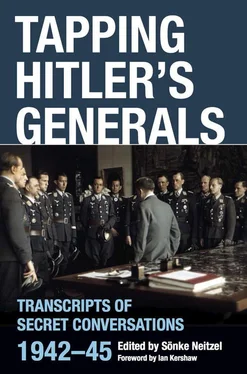

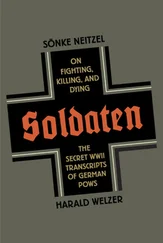
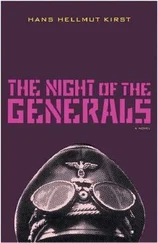


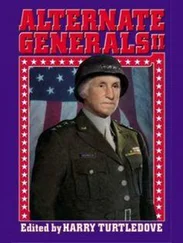

![Traudl Junge - Hitler's Last Secretary - A Firsthand Account of Life with Hitler [aka Until the Final Hour]](/books/416681/traudl-junge-hitler-s-last-secretary-a-firsthand-thumb.webp)



